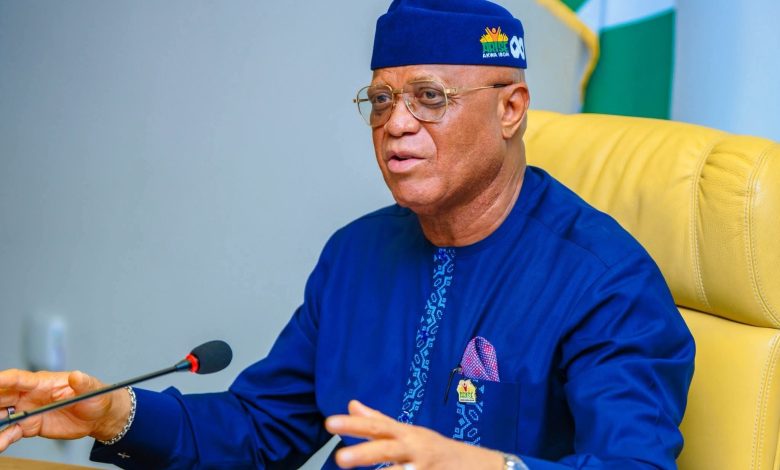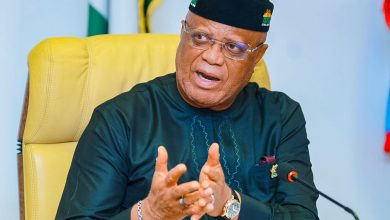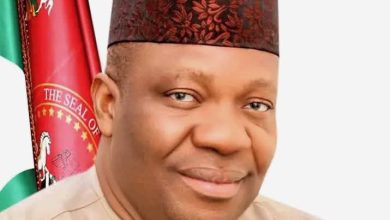
When the Governor of Akwa Ibom State, Pastor Umo Bassey Eno PhD, declared open the National Conference of the Association of Microfinance Banks (NAMB) in Uyo, it was more than a ceremonial event. It was a rallying call, a clear message that the time has come for Nigerians, especially Akwa Ibom citizens, to embrace microfinance as a vehicle for inclusive prosperity.
Governor Eno’s recognition as Nigeria’s “Pillar of Microfinance Banks” could not have been more fitting. His administration’s deliberate investment in small businesses, through grants, training, and targeted financial schemes, reflects a deep understanding of what truly powers a sustainable economy: entrepreneurship at the grassroots.
Microfinance banks were created to fill a gap, to serve the millions of entrepreneurs, traders, and small-scale farmers who are often invisible to conventional banks. For decades, access to finance has been one of the biggest barriers to small business growth in Nigeria. Yet, these very small businesses are the lifeblood of the economy, providing jobs, innovation, and local solutions to everyday challenges.
Governor Eno’s administration has shown that with the right policy direction, microfinance institutions can become a bridge between financial exclusion and economic empowerment. Through initiatives such as the Ibom Fadama Microfinance Bank and the Ibom-LED training programs, thousands of small business owners and young entrepreneurs have gained not just access to credit, but also the skills and confidence to build sustainable ventures.
Over ₦15 billion has already been disbursed in business, agricultural, and market grants across Akwa Ibom. This isn’t just government spending, it’s strategic empowerment. It means that the woman in Ikot Ekpene who runs a palm oil business, or the young farmer in Ini cultivating cassava, can now dream bigger, grow their operations, and hire others.
Related: Gov. Umo Eno Declares Open NAMB National Conference In Uyo
Governor Eno’s vision for microfinance goes beyond lending money. As he rightly emphasised at the NAMB Conference, microfinance is about financial inclusion, empowerment, and capacity building. True empowerment happens when citizens gain access not only to capital but also to the knowledge and networks that enable them to thrive.
His call for microfinance institutions to embrace digitalisation, sustainability, and partnerships is both timely and visionary. In a world rapidly moving toward fintech and digital economies, technology can help microfinance banks reach remote communities, reduce costs, and serve clients more efficiently.
Equally important is the sustainability of these institutions. Microfinance must balance its social mission with sound financial practices. The governor’s model, ensuring that state MDAs operate through Ibom Fadama Microfinance Bank, is a brilliant example of how governments can strengthen local financial ecosystems while maintaining accountability.
It’s no coincidence that the Governor also announced a ₦2 billion matching fund with the Bank of Industry (BoI) to enable small business owners to borrow at single-digit interest rates. This collaboration exemplifies what can happen when state governments, federal agencies, and financial institutions work together to unlock the potential of SMEs.
Globally, microfinance has transformed communities, from Bangladesh’s Grameen Bank model to Kenya’s mobile micro-lending revolution. Nigeria, and indeed Akwa Ibom, is poised to replicate and even surpass these successes, provided citizens seize the opportunity.
Governor Eno’s call for Akwa Ibom citizens to key into microfinance opportunities is, in essence, a call for self-reliance and innovation. The future of the Nigerian economy will not be built solely on oil revenues or large corporations, but on the creativity of its people, the tailor in Eket, the mechanic in Oron, the food processor in Uyo.
Microfinance banks exist to give these entrepreneurs a fighting chance. But access is only the first step. Citizens must be willing to engage, to save, to borrow responsibly, to invest wisely, and to grow their businesses sustainably.
In honouring Governor Umo Eno as the Pillar of Microfinance in Nigeria, the Association of Microfinance Banks recognised more than a man, they acknowledged a vision. A vision that sees every citizen as a potential wealth creator; a vision that links local action to global economic transformation.
As Nigeria seeks pathways out of economic volatility, microfinance stands as one of the most potent tools for inclusive growth. And leaders like Governor Eno are proving that when government policies meet the entrepreneurial spirit of the people, real development happens, not just on paper, but in markets, farms, and workshops across the land.
In the end, microfinance is not just about money, it’s about dignity, opportunity, and the belief that prosperity can, and should, begin from the bottom up.
Lucy Daniel is SA to the Governor on Media and writes from Uyo, Akwa Ibom State




